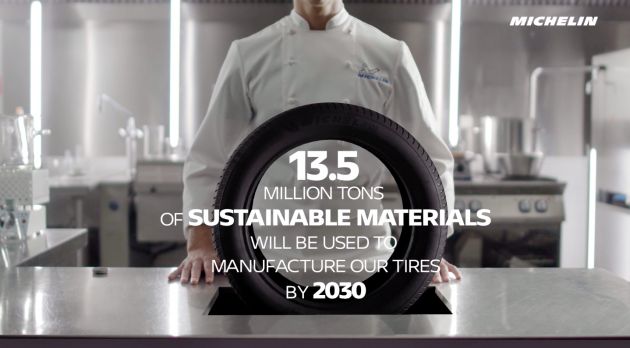Michelin tyres to become 100% sustainable by 2050
Michelin aims to become a fully sustainable manufacturer of tyres from fully sustainable materials and processes by 2050. At present, nearly 30% of components used by Michelin in the manufacture of tyres are already from natural, recycled or otherwise sustainable sources, the tyre manufacturer said.
A Michelin tyre is comprised of more than 200 ingredients, starting with natural rubber as the main ingredient. This is joined by synthetic rubber, metal, fibres, as well as strengthening components such as carbon black, silica and plasticisers such as resins. These combine to deliver a blend of performance, drivability and safety along with reducing the tyre’s impact on the environment.
Quicker and more in-depth innovation calls for new forms of cooperation, and to that end Michelin has formed partnerships with companies and start-ups which offer promising prospects, said the tyre manufacturer.
The BioButterfly project is spearheaded by Axens and IFP Energies Nouvelles, two companies whom Michelin has been working with since 2019 for the production of bio-sourced butadiene to replace petroleum-based butadiene. Up to 4.2 million tonnes of wood chips could be incorporated into the manufacturing of Michelin tyres each year, using the biomass from wood, rice husks, leaves, corn stalks and other plant waste.
Michelin has also signed a partnership with Canada-based Pyrowave, which will produce recycled styrene from packaging plastics such as yoghurt pots and food trays, as well as insulating panels. Styrene is a key monomer in the manufacture of polystyrene, as well as synthetic rubber for tyres and a wide range of consumer goods.
Plastic bottles can also be recycled into tyres, says Michelin. A process developed by French start-up Carbios uses enzymes to deconstruct polyethlene teraphthalate (PET) plastic waste into its original pure monomers, which can be infinitely recovered and reused to produce new PET plastic products. Among these are the polyester yarn that is used in tyres, and some four billion plastic bottles could be recycled into tyres this way.
Most recently, Michelin announced this month that it will commence construction of its first tyre recycling plant with Swedish firm Enviro, which has developed patented technology for the recovery of carbon black, pyrolysis oil, steel, gas, and other high-quality reusable material from end-of-life tyres, says Michelin. This will the recovery and reuse of tyres in several rubber-based production processes, it said.
Michelin also supports the circular economy model through its participation in the European BlackCycle consortium. This project is coordinated by the Michelin Group and financed by the European Union, which brings together 13 public- and private-sector partners in order to design processes for the production of new tyres from end-of-life rubber.










The post Michelin tyres to become 100% sustainable by 2050 appeared first on Paul Tan's Automotive News.
from Paul Tan's Automotive News
Read The Rest:paultan...



Post a Comment